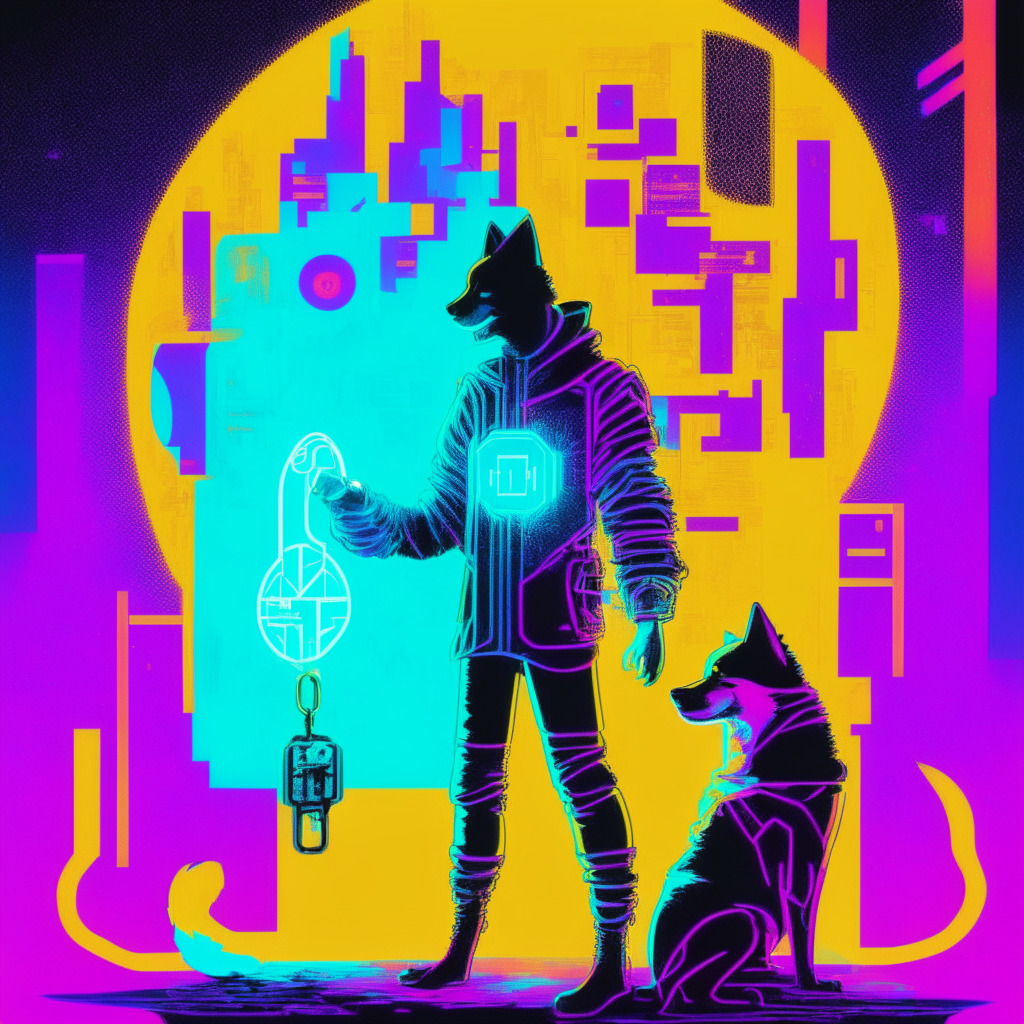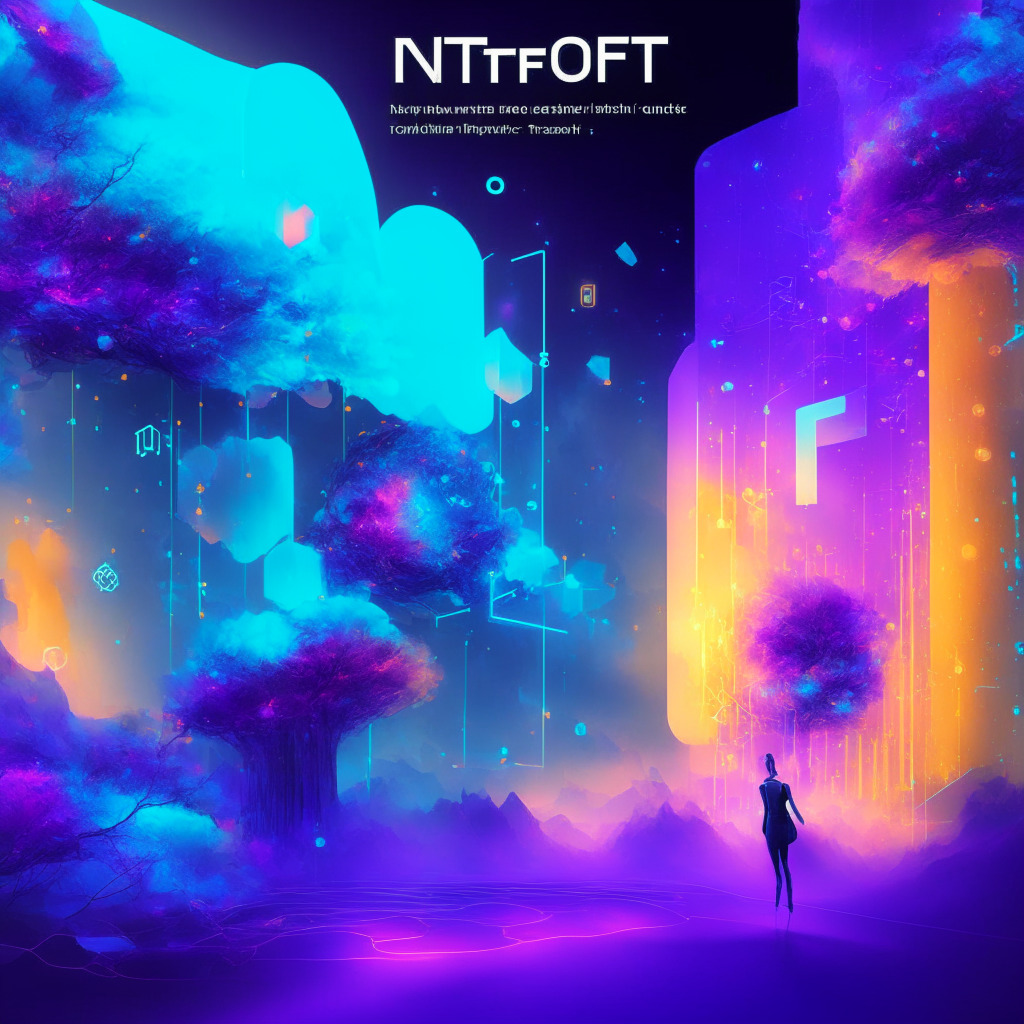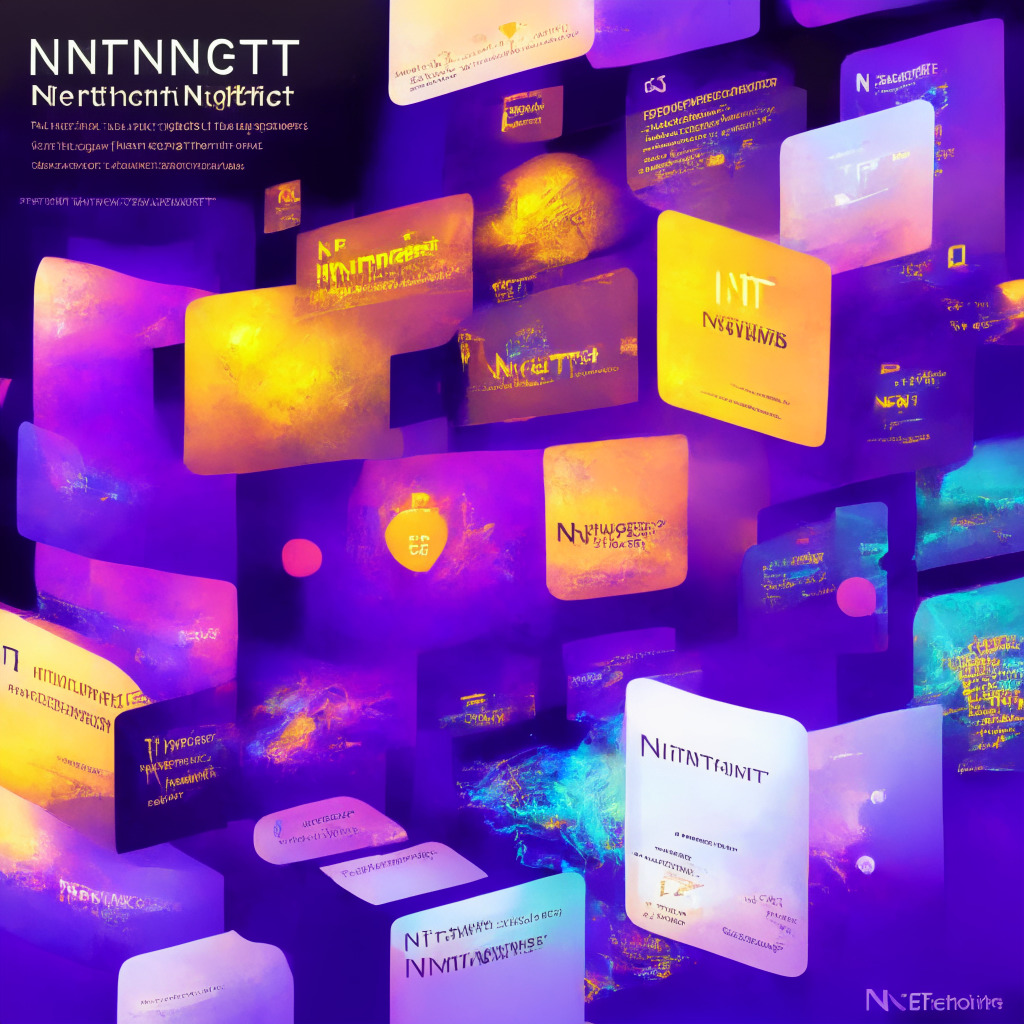“Crypto’s primary use is still to amplify wealth, but its potential extends well beyond that. Blockchain technology can revolutionize self-custody of assets, enable peer-to-peer connections, and spur innovative business models. Overcoming rampant speculation to highlight crypto’s actual utility is crucial.”
Search Results for: Web2
Deciphering Shiba Inu’s Stand on Self-Sovereign Identity: A Move towards Data Ownership or a Privacy Paradox?
“Shiba Inu, a popular cryptocurrency project, is integrating self-sovereign identity (SSI) into its protocol for improved data ownership. This technology offers secure, private identity interactions online, reducing reliance on centralized entities and potentially transforming personal data into an economic asset. However, ensuring balance between privacy and security presents a challenge.”
Wreck League: Animoca Brands’ Next Spectacle in Web3 Gaming and NFT Market Activities
“Wreck League”, a new NFT-based game is set to launch by the house of Animoca Brands and its subsidiary, nWay. The game allows players to create mech characters from collectible NFT components. It will also include a free-to-play Web2 version accessible across multiple platforms, and also provide the opportunity for players to compete for on-chain valuables.
Navigating the Future of Blockchain Wallets: Simplicity and Security in a Post-Wallet Web3 World
“Blockchain wallets’ complexity and high stakes of faults are impediments to widespread adoption. Innovations aim to make wallets as user-friendly as Web2 apps, while remaining decentralized and secure. Technologies like smart contract wallets and Decentralized identifiers (DIDs) promises improved functionality, security and simplified interactions for users, envisioning a wallet-less Web3 experience.”
Navigating Turbulence: NFT Now’s Setbacks in a Cooling Market and Lessons for Tokenized Media
“As the NFT market cools, Web3 media companies like NFT Now are feeling the impact, leading to job cuts and strategic reassessments. The company, which had expanded significantly during the bull market, is now rethinking its growth strategy, terming its previous pace as unsustainable. Amid layoffs and hacking scenarios, the company grapples with a rapidly evolving tech world.”
2023: The Year We Regain Control Over Our Personal Data Through Blockchain?
“Embracing self-sovereignty demands a shift to blockchain and cryptographic technologies. Contrary to centralized systems, decentralization offers individual control of one’s data, identities, and credentials. Web3 technologies promise individuals security for their data. However, achieving self-sovereign data requires extensive real-world infrastructure and new coding paradigms.”
Customizable NFT-Styled Debit Cards: Pushing the Boundaries of Personalized Banking or Risky Endeavour?
“Animoca Brands is partnering with hi, a Web3 app, for the launch of customizable NFT-styled crypto debit cards. The move is set to revolutionize personal finance and digital banking, emphasizing individual expression within the Web3 space and advancing the utility of non-fungible tokens. The launch, however, does pose potential security issues due to its reliance on a dual-node structure.”
Decentralized Finance on the Rise: How the Developer Stack Might Shape the $10 Trillion Crypto Future
“Expectations for decentralized finance (DeFi) projects resurgence are high, states Boris Revsin of Tribe Capital. His vision suggests a move towards open markets, with infrastructure development in places like Dubai and Singapore. Developers, being key, can evolve crypto into a $10 trillion industry.”
A Rough Patch in the Crypto Realm: The Dip in VC Funding for Web3 Startups and the Rising Hope
Crunchbase reports indicate a 76% drop in funding for Web3 startups from VC funds in Q2 compared to last year. This year’s tally stands at $3.6 billion, a 78% downturn from 2022’s $16 billion. Despite this drop, AI startups continue to attract investors, while certain Web3 initiatives manage to secure impressive funding amidst the downturn.
Bridging the Gap: Gnosis Fuses Decentralized Payments with Visa’s Traditional Channels
Gnosis is pioneering the integration of decentralized payment systems with conventional channels, launching products allowing users to spend their digital assets from wallets via Visa’s system. Gnosis Pay and Gnosis Card, a self-funded Visa debit card connected to an on-chain wallet, aim to simplify the movement of crypto-assets and reinforce the Gnosis blockchain ecosystem.
The Phygital Revolution: Bridging the Gap Between Fashion, Music, and Blockchain Technology
“Blockchain and digital assets company, Legitimate, has partnered with PUMA and Roc Nation to develop an exclusive sneaker collection that merges music, fashion, and blockchain technology. Their ‘phygital’ approach also incorporates NFC chips to deliver unique content and foster strong bonds between brands and customers.”
Fluctuating Fortunes: NEAR Protocol’s Q2 Report and the Future of Blockchain Resilience
The Q2 report indicates Near Protocol’s treasury declined to $900 million, due to the price plunge of NEAR tokens. Yet, the robust strategies of the blockchain entities reflect resilience amidst volatile token valuations. For the long term, a blockchain enterprise’s tech advancements, user engagement, and decentralized ecosystem value outweigh the market and token fluctuations.
Decoding DeeLance: Disrupting Recruitment with Blockchain & NFTs – A Gamble Worth Taking?
“DeeLance, a crypto project that achieved $1.5 million in presale, aims at reinventing the recruitment space using blockchain, non-fungible token (NFT), and metaverse technologies. Although this groundbreaking approach presents a potential seismic shift, critics question whether it can efficiently and securely disrupt a saturated industry.”
Generative AI and Blockchain: A Harmonious Match or Uneasy Alliance?
Generative AI’s integration with Web3 and the idea of a blockchain specifically for generative AI is gathering interest, given the centralized control concerns of AI foundation models. Open-source models might ease their adoption on Web3 platforms, making blockchain architectures a promising solution for transparency issues. However, constructing a specialized blockchain for generative AI comes with challenges that need thoughtful consideration and collective action.
GPU Shortage as a Catalyst for Web3: How Decentralized Infrastructure Networks Benefit AI Startups
The GPU shortage could accelerate the adoption of Web3 by mainstream thanks to decentralized physical infrastructure networks (DePIN). Protocols like Akash, enabling GPU leasing to AI start-ups, and Arweave, offering permanent data storage, could help alleviate resource issues. DePIN could provide inexpensive, reliable infrastructure for startups, shielding them from AI threats and offering advantages over Web2.
Navigating the Gaming Landscape: Unpacking the Blockchain and GameFi Synthesis
“The potential incorporation of blockchain in gaming could fuel an exciting GameFi sector where the lines between blockchain users and gamers blur. Yet, the successful integration so far remains a challenge – both technically and from a user’s standpoint. Real, immersive blockchain games may unlock mass adoption. Future models should move past speculative motives and build stellar games leveraging the technology’s unique features.”
Mass Web3 Adoption: Stealthy Integration in Entertainment, Gaming, and Traditional Finance
Mass adoption of Web3 is approaching through entertainment, loyalty, and gaming sectors, with NFTs revolutionizing ticketing, fan engagement, and in-game assets. Traditional industries like finance are venturing deeper into the market as adoption subtly transforms the digital landscape.
Fortnite x Nike Collaboration: The Future of Blockchain, Crypto, and Gaming?
Fortnite recently announced a collaboration with Nike and its NFT-driven .Swoosh Web3 platform. The partnership, “Airphoria,” allows in-game Nike-branded experiences in Fortnite Creative Mode. Users can participate in a Nike sneakerhunt and earn a free in-game accessory.
Energy Web’s Shift to Polkadot: Boosting Decarbonization and Attracting Energy Giants
Energy Web is transitioning from its Ethereum-based blockchain to the Polkadot ecosystem to scale its decarbonization product line and attract traditional energy giants. This move aims to enhance cybersecurity, increase decentralization, and accelerate the adoption of cleaner energy sources by major energy producers. The integration with Polkadot will provide a “Web2-like experience” for companies, addressing the evolving needs of the energy sector.
Apple’s Gaming Potential vs High Cost: Exploring Metaverse & Gaming Cryptos on Blockchain
Apple may enhance its gaming platform with a VR/AR headset in 2024 and software for playing Windows games on Mac. Meanwhile, tokens SAND, MANA, and AXS face SEC complaints, and GameStop’s new CEO plans to enter the crypto space with an NFT marketplace.
dApp Store Kit & Ready Games: Revolutionizing Web3 Gaming or Just Hype?
dApp Store Kit partners with Ready Games to facilitate seamless Web3 gaming integration, improving user experience and accessibility. This collaboration aims to drive mass adoption of blockchain-powered gaming experiences, revolutionizing the gaming landscape within the Web3 ecosystem.
AI-Fueled NFT Analytics Provider Mnemonic Raises $6M: Exploring Web3 Integration and User Safety
Mnemonic, an AI-fueled NFT data and analytics provider, raised $6 million in a seed extension round led by Salesforce Ventures. The funds will be used to improve analytics, expand market reach, and develop its partner ecosystem. Salesforce plans to integrate Mnemonic’s technology into its Web3-related CRM products, enhancing data-driven decision-making for customers.
Dynamic NFTs and Web3 CRM: Arianee Reshapes Brand-Customer Interaction
Arianee is revolutionizing NFTs for brands like Lacoste and Panerai by offering dynamic NFTs with six smart contracts, enhancing CRM in the Web3 space. Arianee’s platform simplifies NFT creation and enables new interactions between issuers and collectors, ultimately transforming brand-customer engagement.
Chorus One Enters Urbit Hosting Space: A Step Towards Decentralization or Unsustainable Complexity?
Chorus One, a staking services provider for over 40 blockchains, including Ethereum, Solana, Cosmos, and Polkadot, has entered the Urbit peer-to-peer network with its launch of Red Horizon hosting platform. This move expands Urbit’s ecosystem and indicates growing interest in decentralized, peer-to-peer solutions for greater autonomy and control over personal data.
Web3 Social Media: Decentralization, Privacy, and the Debate on Content Control
Web3 social media platforms focus on decentralization, transparency, and user data ownership, leveraging technologies like AI, Machine Learning, and blockchain. Providing users with complete freedom and control, they incentivize engagement through token rewards and NFTs but face challenges in balancing freedom with content security.
Aave Secures $15M for NFT-Powered Decentralized Social Media: Lens vs. Traditional Platforms
Aave secures $15 million to develop Lens, an NFT-powered protocol for decentralized social media platforms, enabling users to tokenize social data and transfer it between platforms. Built on Ethereum scaling solution Polygon, Lens aims to consolidate users’ online presence and promote growth across networks.
Decentralization Theater: Unmasking the Truth Behind Fake DeFi Projects and Ensuring a Genuine Future
In the world of DeFi, “decentralization theater” refers to projects appearing decentralized but retaining central control, confusing users and regulators. Genuine decentralization is vital for the development of Web3 ecosystems, disrupting the centralized Web2 architecture, and maintaining user trust.
Web3 Revolution: Transforming Content Creation, Film, and Gaming with Blockchain
The creator economy is transitioning to Web3, spearheaded by content creators, film, and gaming industries. With the support of Web2 giants like Amazon and Mastercard, blockchain projects offer enhanced media experiences, new revenue streams, and innovative platforms such as Royalty and tokenization in film funding. Blockchain-based gaming experiences and collaborations continue to evolve the content creation landscape.
U.S. Congressional Hearing Explores Blockchain’s Future and Web3 Applications
In a recent House Energy and Commerce Committee Subcommittee meeting, Polygon Labs’ Ryan Wyatt discussed the potential of blockchain technology in creating a decentralized, transparent Web3, benefiting users and driving economic growth. He emphasized the need for a well-regulated blockchain ecosystem in the US to maintain competitiveness and ensure domestic technology industry thrives.
Navigating the Chaos: Pros and Cons of Web3 Social Media Fragmentation
The emerging Web3 social media landscape faces fragmentation, with users struggling to adopt multiple platforms. Despite barriers to entry, increased experimentation and innovation are paving a path to the success of Web3 social networks, challenging well-established Web2 communities like Twitter and Instagram. The future of Web3 relies on balancing innovation with user experience to seamlessly connect global communities.
Penny Crypto Gains Whale Attention: Launchpad XYZ’s Ambitious Web3 Platform Pros and Cons
Cryptocurrency markets offer various opportunities for investors, with penny cryptos like Launchpad XYZ ($LPX) gaining traction due to their high ROI potential. Attracting crypto whales, the platform aims to bridge the gap between Web2 and Web3, engaging the next 10 million Web3 users through its decentralized exchange, trading terminal, NFT exchange, and comprehensive user experience.
Luxembourg Pioneers Web3 Regulation: Balancing Blockchain Innovation and Market Competition
Luxemburg’s competition regulator, Autorité de la Concurrence, initiates a first-of-its-kind study to explore the relationship between blockchain-based products, services, and existing digital companies. The study aims to ensure competitive and well-functioning markets, assess competition, and identify potential anti-competitive practices within Web3 and blockchain-based firms.































